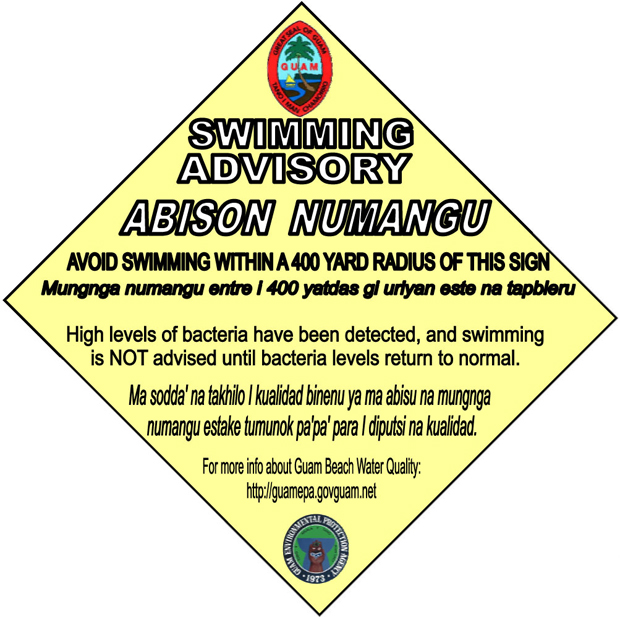
by John Cronin | Jul 19, 2014 | EarthDesk Sunday, EPA's Invisible Beaches, Pollution, Water
Today’s EarthDesk Sunday is the official beach warning sign of Guam. During the last two weeks, EarthDesk featured stories about some of the many polluted beaches and swimming areas in states the U.S. Environmental Protection Agency does not include in its...
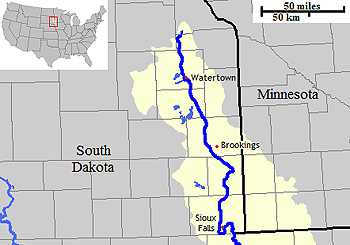
by John Cronin | Jul 17, 2014 | EPA's Invisible Beaches, Law & Policy, Pollution, Recreation, Water
Controversy erupted in Sioux Falls, South Dakota yesterday when the East Dakota Water Development District proposed warning signs that would advise swimmers, paddlers and other recreational users about excessive bacterial pollution of the Big Sioux River. Sioux Falls...
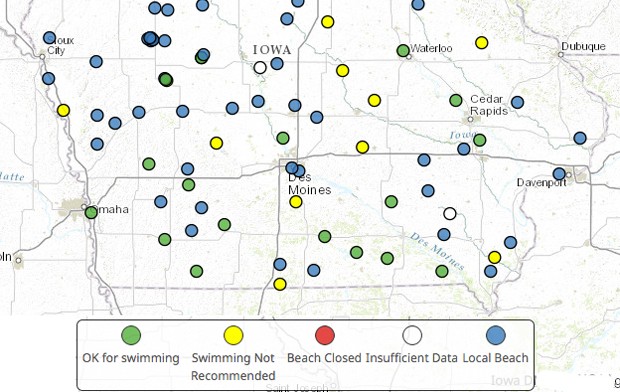
by John Cronin | Jul 15, 2014 | EPA's Invisible Beaches, Law & Policy, Pollution, Recreation, Water
At present, 12% of Iowa’s swimming beaches have elevated levels of E. coli bacteria, according to the Iowa Department of Natural Resources Beach Monitoring Progam (locations in yellow below). The U.S. Environmental Protection Agency does not include Iowa...
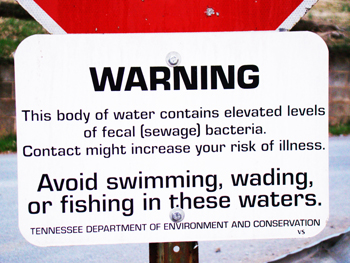
by John Cronin | Jul 13, 2014 | EPA's Invisible Beaches, Law & Policy, Pollution, Recreation, Water
In Tennessee, where typical daytime summer temperatures are locked in the high 80s and above, “about 176 river miles are posted due to bacterial contamination,” warns the state’s Department of Environment and Conservation (DEC). Causes of the contamination are...
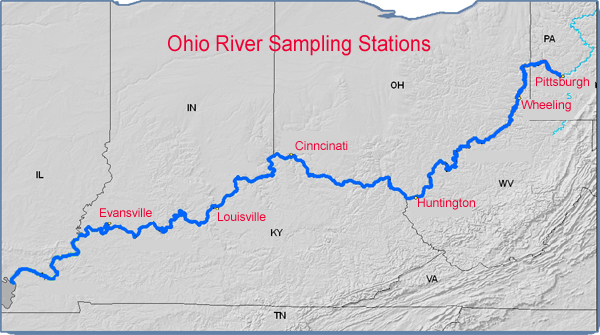
by John Cronin | Jul 11, 2014 | EPA's Invisible Beaches, Law & Policy, Pollution, Recreation, Water
53% of Samples Taken at Wheeling, WV Unsafe. 23% of samples taken from the Ohio River tested unsafe for swimming due to bacterial contamination according to analyses conducted by the Ohio River Valley Sanitation Commission (ORSANCO) at six sites spread over five...
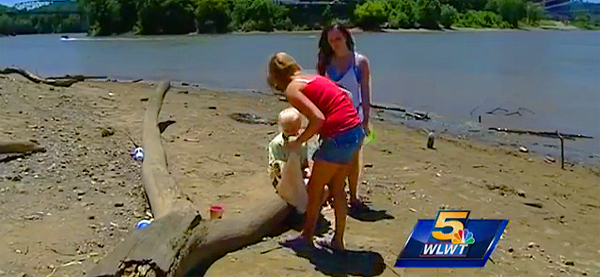
by John Cronin | Jul 8, 2014 | EPA's Invisible Beaches, Law & Policy, Pollution, Recreation, Water
“Swimming advisories that have been in place for several years . . .will remain in effect” on the Kentucky River, Upper Cumberland River and Licking River “because of high levels of fecal coliform bacteria,” according to the State of Kentucky...
















